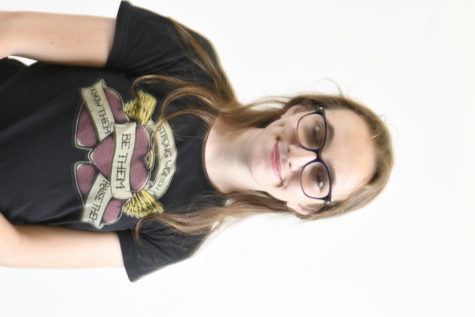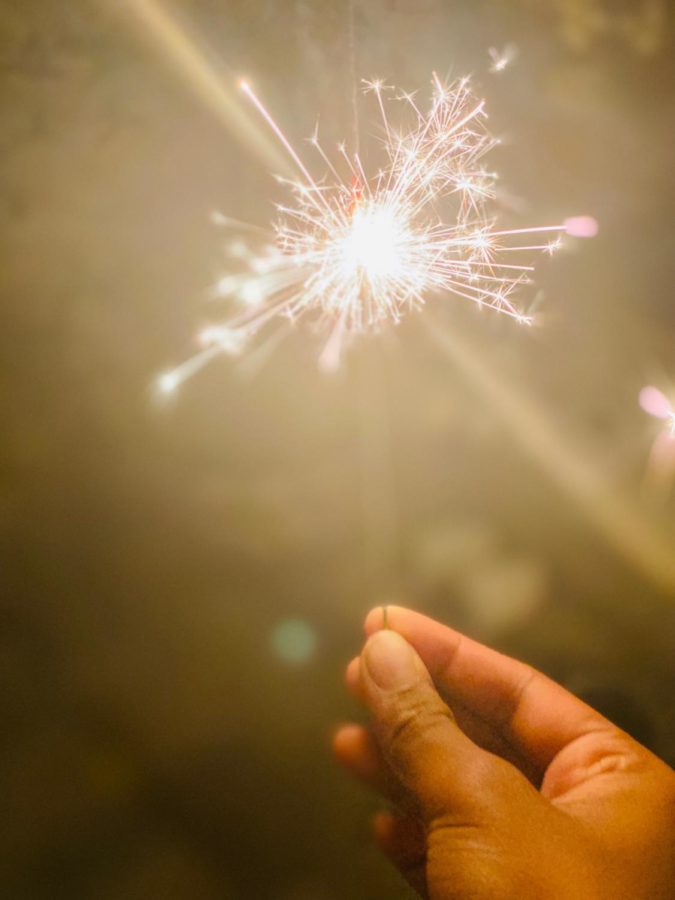Celebrating Diwali
RUHS students celebrate the Indian holiday
Twinkling candles are sprinkled everywhere, quietly cradled by small golden lamps. The smell of warm food lingers in the air. Vibrant textiles strung with colorful flowers fall gracefully from the ceiling, surrounded by golden statues of sacred gods and goddesses. The echoes of a century-old story seep slowly into the room. The story, that is, of Diwali.
Diwali is an Indian holiday celebrated by Buddhists, Sikhs and Jains, but chiefly by Hindus. In Hinduism, the story goes that Lord Rama returned to his home village after 14 years in exile, and the villagers used candles to light the path for him on his journey home after he had defeated the demon king Ravana. Lord Krishna declared it a day of celebration, happiness, joy and peace, hoping people from then on would celebrate it recognizing that light outshines darkness.
“A lot of Indian mythology goes back to ancient times when we believed there were several gods. There were also demons, who were terrorizing [people], and it was kind of an ongoing battle. Spiritually, it’s very joyous. If they were able to defeat that demon, then it’s like light winning over darkness,” senior Anika Chandra, who celebrates Diwali, said.
Diwali is a holiday that celebrates light (both metaphorically and literally) through the use of candles and bright colors, symbolizing that joy and love can be found anywhere, according to Chandra.
“It’s called the Festival of Lights. And I think it directly translates to exactly that. But on a deeper level, Diwali is about coming together with family to celebrate something that’s bigger than us. Just taking that time to spend time with family and celebrate light over darkness, essentially truth over evil,” junior Shreya Wunnava, who also celebrates Diwali, said.
Chandra appreciates how the holiday brings her family and friends together with fun celebrations.
“The social aspect [of Diwali] is definitely my favorite part, especially when my family friends and I go in the backyard and light the sparklers, ” Chandra said. “Talking with these people, being together in the moment, being present – it’s fun. It’s also fun to see the sparklers light up in the dark.”
Wunnava agreed that spending time with family is the best part of Diwali.
“It’s really important to me, especially as I’ve grown up and gotten older. Connecting more of my culture to spending time with family on that festival is probably the most important part to me. Followed by dressing up, because I love to dress up, But family is most important,” Wunnava said.
According to Chandra, light’s victory over darkness also represents new beginnings. In the same way that many people set goals for New Year on January 1, many celebrators of Diwali see it as a place for a fresh start.
“Diwali marks the beginning of something prosperous and healthy,” Chandra said. “It’s the end of this gory battle, a celebration of its ending, saying hopefully you don’t have to go through those struggles again. It’s similar to a new year, but not really a new year. It marks the beginning of something amazing and prosperous, and hoping you can make something out of it.”

Hi! I'm Marlie. I'm a Freshman Staff Writer (this is my first year in Journalism). I love writing about a lot of things and I love reading about very specific things. And in case you were wondering,...



